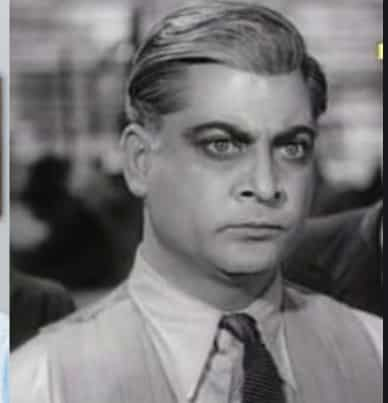People often get confused between critical illness cover with indemnity health plan (mediclaim). These are two different policies serving different purposes.
People often get confused between critical illness cover with indemnity health plan (mediclaim). These are two different policies serving different purposes.
The main objective of a critical illness plan is to protect against financial liability arising out of a serious illness specified under the policy.
The cover also takes care of other situations like loss of income or permanent disability due to the ailment. An indemnity health plan, on the other hand, reimburses hospitalisation expenses.
“In critical illness there is a danger of loss of pay and job. A critical illness cover not only provides for medical expenses, but can also shield one from loss of income,” says Shefali Chhachhi, director-marketing, Max Bupa Health Insurance. “Income generation of a person can be affected when he or she suffers from a deadly disease. Besides, the cost incurred for the treatment can be a burden. Critical illness policy can be considered as a living benefit in these situations,” says Shreeraj Deshpande, head-health insurance, Future Generali India Insurance Co.
A critical illness policy provides insurance against the specified illnesses, where on detection the policyholder gets a one-time benefit. Ailments such as cancer, stroke, kidney failure, major organ transplants, multiple sclerosis and paralysis are covered under it.
“A critical illness policy is not a substitute to an indemnity health plan, but as a rider it brings in a higher level of cover,” says Antony Jacob, CEO, Apollo Munich Health Insurance.
Economically, it is viable for the policyholders to have a critical illness cover as a rider with an indemnity health insurance to hedge against high medical costs.
Another key differentiator is that critical illness is a benefit plan wherein a lumpsum amount is paid when you are diagnosed with any of the specified illness, while an indemnity health cover is a reimbursement plan. Hospitalisation is not relevant for a critical illness policy, but diagnosis matters.
A mediclaim policy has a wide scope by covering many ailments other than pre-existing diseases, maternity and dental treatment.
The scope of a critical illness is much narrow as a standalone policy. The maximum cover available for a mediclaim may be `5 lakh, but a critical illness policy can have a sum assured of `5-50 lakh.
Waiting period for a health insurance policy is generally 30 days. Under a critical illness plan the policyholder will get the benefit only after 90 days from the commencement of policy.
A critical illness policy can get rejected if the policyholder dies within 30 days of the diagnosis.
“With the rising trend of critical illnesses such as cancer, stroke and heart attacks we have seen an upward trend in the number of critical illness riders being added in standard insurance products,” said Antony of Apollo Munich.
![submenu-img]() This actor made Sharmila Tagore forget her lines, once did film for Rs 100, could never be a superstar because..
This actor made Sharmila Tagore forget her lines, once did film for Rs 100, could never be a superstar because..![submenu-img]() Volkswagen Taigun GT Line, Taigun GT Plus launched in India, price starts at Rs 14.08 lakh
Volkswagen Taigun GT Line, Taigun GT Plus launched in India, price starts at Rs 14.08 lakh![submenu-img]() Donald Trump accused of corrupting 2016 US presidential elections, prosecutors say he...
Donald Trump accused of corrupting 2016 US presidential elections, prosecutors say he...![submenu-img]() Taiwan hit by dozens of earthquakes, largest measuring 6.3 magnitude, no major damage reported
Taiwan hit by dozens of earthquakes, largest measuring 6.3 magnitude, no major damage reported![submenu-img]() Mumtaz urges to lift ban on Pakistani artistes in Bollywood: ‘Woh log hum logon se...'
Mumtaz urges to lift ban on Pakistani artistes in Bollywood: ‘Woh log hum logon se...'![submenu-img]() DNA Verified: Is CAA an anti-Muslim law? Centre terms news report as 'misleading'
DNA Verified: Is CAA an anti-Muslim law? Centre terms news report as 'misleading'![submenu-img]() DNA Verified: Lok Sabha Elections 2024 to be held on April 19? Know truth behind viral message
DNA Verified: Lok Sabha Elections 2024 to be held on April 19? Know truth behind viral message![submenu-img]() DNA Verified: Modi govt giving students free laptops under 'One Student One Laptop' scheme? Know truth here
DNA Verified: Modi govt giving students free laptops under 'One Student One Laptop' scheme? Know truth here![submenu-img]() DNA Verified: Shah Rukh Khan denies reports of his role in release of India's naval officers from Qatar
DNA Verified: Shah Rukh Khan denies reports of his role in release of India's naval officers from Qatar![submenu-img]() DNA Verified: Is govt providing Rs 1.6 lakh benefit to girls under PM Ladli Laxmi Yojana? Know truth
DNA Verified: Is govt providing Rs 1.6 lakh benefit to girls under PM Ladli Laxmi Yojana? Know truth![submenu-img]() Remember Abhishek Sharma? Hrithik Roshan's brother from Kaho Naa Pyaar Hai has become TV star, is married to..
Remember Abhishek Sharma? Hrithik Roshan's brother from Kaho Naa Pyaar Hai has become TV star, is married to..![submenu-img]() Remember Ali Haji? Aamir Khan, Kajol's son in Fanaa, who is now director, writer; here's how charming he looks now
Remember Ali Haji? Aamir Khan, Kajol's son in Fanaa, who is now director, writer; here's how charming he looks now![submenu-img]() Remember Sana Saeed? SRK's daughter in Kuch Kuch Hota Hai, here's how she looks after 26 years, she's dating..
Remember Sana Saeed? SRK's daughter in Kuch Kuch Hota Hai, here's how she looks after 26 years, she's dating..![submenu-img]() In pics: Rajinikanth, Kamal Haasan, Mani Ratnam, Suriya attend S Shankar's daughter Aishwarya's star-studded wedding
In pics: Rajinikanth, Kamal Haasan, Mani Ratnam, Suriya attend S Shankar's daughter Aishwarya's star-studded wedding![submenu-img]() In pics: Sanya Malhotra attends opening of school for neurodivergent individuals to mark World Autism Month
In pics: Sanya Malhotra attends opening of school for neurodivergent individuals to mark World Autism Month![submenu-img]() DNA Explainer: What is cloud seeding which is blamed for wreaking havoc in Dubai?
DNA Explainer: What is cloud seeding which is blamed for wreaking havoc in Dubai?![submenu-img]() DNA Explainer: What is Israel's Arrow-3 defence system used to intercept Iran's missile attack?
DNA Explainer: What is Israel's Arrow-3 defence system used to intercept Iran's missile attack?![submenu-img]() DNA Explainer: How Iranian projectiles failed to breach iron-clad Israeli air defence
DNA Explainer: How Iranian projectiles failed to breach iron-clad Israeli air defence![submenu-img]() DNA Explainer: What is India's stand amid Iran-Israel conflict?
DNA Explainer: What is India's stand amid Iran-Israel conflict?![submenu-img]() DNA Explainer: Why Iran attacked Israel with hundreds of drones, missiles
DNA Explainer: Why Iran attacked Israel with hundreds of drones, missiles![submenu-img]() This actor made Sharmila Tagore forget her lines, once did film for Rs 100, could never be a superstar because..
This actor made Sharmila Tagore forget her lines, once did film for Rs 100, could never be a superstar because..![submenu-img]() Mumtaz urges to lift ban on Pakistani artistes in Bollywood: ‘Woh log hum logon se...'
Mumtaz urges to lift ban on Pakistani artistes in Bollywood: ‘Woh log hum logon se...'![submenu-img]() Not Kiara Advani, but this actress was first choice opposite Shahid Kapoor in Kabir Singh, she rejected because...
Not Kiara Advani, but this actress was first choice opposite Shahid Kapoor in Kabir Singh, she rejected because...![submenu-img]() Meet beauty queen, who worked with Deepika, Ranveer, quit films after big flop, is now married to son of billionaire
Meet beauty queen, who worked with Deepika, Ranveer, quit films after big flop, is now married to son of billionaire![submenu-img]() Chunky Panday reacts to Ananya Panday's rumoured relationship with Aditya Roy Kapur: 'How dare...'
Chunky Panday reacts to Ananya Panday's rumoured relationship with Aditya Roy Kapur: 'How dare...'![submenu-img]() IPL 2024: Yashasvi Jaiswal, Sandeep Sharma guide Rajasthan Royals to 9-wicket win over Mumbai Indians
IPL 2024: Yashasvi Jaiswal, Sandeep Sharma guide Rajasthan Royals to 9-wicket win over Mumbai Indians![submenu-img]() IPL 2024: How can RCB still qualify for playoffs after 1-run loss against KKR?
IPL 2024: How can RCB still qualify for playoffs after 1-run loss against KKR?![submenu-img]() CSK vs LSG, IPL 2024: Predicted playing XI, live streaming details, weather and pitch report
CSK vs LSG, IPL 2024: Predicted playing XI, live streaming details, weather and pitch report![submenu-img]() RR vs MI: Yuzvendra Chahal scripts history, becomes first bowler to achieve this massive milestone in IPL
RR vs MI: Yuzvendra Chahal scripts history, becomes first bowler to achieve this massive milestone in IPL![submenu-img]() 'Yeh toh second tier ki bhi team nhi': Ramiz Raja slams Babar Azam and co. after 3rd T20I loss vs New Zealand
'Yeh toh second tier ki bhi team nhi': Ramiz Raja slams Babar Azam and co. after 3rd T20I loss vs New Zealand![submenu-img]() Mukesh Ambani's son Anant Ambani likely to get married to Radhika Merchant in July at…
Mukesh Ambani's son Anant Ambani likely to get married to Radhika Merchant in July at…![submenu-img]() India's most expensive wedding costs more than weddings of Isha Ambani, Akash Ambani, total money spent was...
India's most expensive wedding costs more than weddings of Isha Ambani, Akash Ambani, total money spent was...![submenu-img]() Meet Indian genius who lost his father at 12, studied at Cambridge, took Rs 1 salary, he is called 'architect of...'
Meet Indian genius who lost his father at 12, studied at Cambridge, took Rs 1 salary, he is called 'architect of...'![submenu-img]() Earth Day 2024: Google Doodle features aerial photos of planet's natural beauty, biodiversity
Earth Day 2024: Google Doodle features aerial photos of planet's natural beauty, biodiversity![submenu-img]() Meet India's first billionaire, much richer than Mukesh Ambani, Adani, Ratan Tata, but was called miser due to...
Meet India's first billionaire, much richer than Mukesh Ambani, Adani, Ratan Tata, but was called miser due to...












































)
)
)
)
)
)